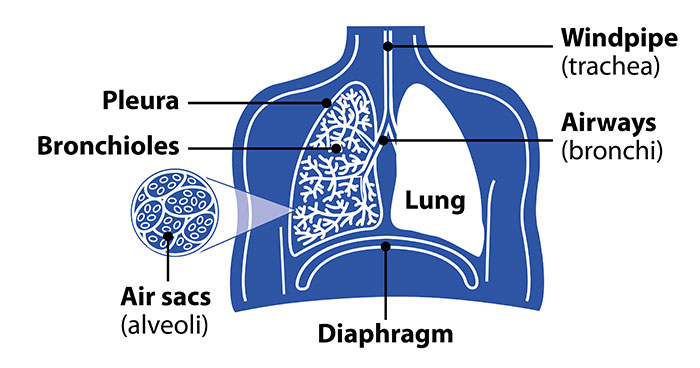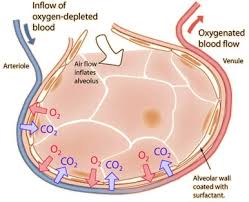How do the lungs help maintain homeostasis in the body?
1 Answer
The lungs are essential for gas exchange - helping to keep the right balance of all the gases in our body.
Explanation:
Homeostasis is all about getting the right balance and maintaining the correct balance is essential for our body's survival. Lungs and the respiratory system help by balancing out the gases in our bodies.

Oxygen levels
In order to live, all cells need a supply of oxygen. Luckily, when we inhale plenty of oxygen enters our body through the respiratory tract. It is then "processed" by tiny sacs called alveoli in the lungs and absorbed into the blood stream to be delivered to our cells. If there is not enough oxygen in the blood to accommodate adequate respiration, the lungs will adapt in order to bring in more oxygen.
Think of when you go for a long run. You have increased the amount of work that your muscles are doing, so they are more active and need more energy from the glucose in your body. Therefore, respiration increases. Because respiration has increased, your body needs more oxygen to keep up with the demand. This is why you breath quicker and more heavily when exercising.

Carbon dioxide levels
However, as cells respire, they use this oxygen up and produce carbon dioxide - which isn't as useful. As carbon dioxide is a waste product, and has little use in our body, we have to dispose of it. This time, the deoxygenated blood which is full of carbon dioxide comes to be filtered by the lungs. The blood is topped up with oxygen, and the carbon dioxide is removed ready to be exhaled.
Acidity
This is important, as carbon dioxide dissolves in water to form an acid. By removing the carbon dioxide, the lungs also help to keep a healthy pH balance, essential to ensure that our cells and enzymes can work at the optimum efficiency!
Water
Finally, the lungs also play a large part in maintaining sufficient water content. When we exhale, not only do we remove carbon dioxide, but we also remove lots of water vapor,. This is why when you breath on a cold window, it gets steamy - that's the water vapor in your breath condensing.
So, as water leaves your body via the lungs, it is involved in keeping the right balance of water (along with sweat and urine). As one area increases or decreases, all the other ways of removing water will adjust to balance it out.
For example, on a cold day (when you don't sweat much) it is likely that you will produce more urine that is less concentrated, or even expel more water through your breath.
When you exercise, you also lose more water as you are breathing more often. It's all one big, constant balancing act!
I hope this helps, let me know if I can do anything else:)
